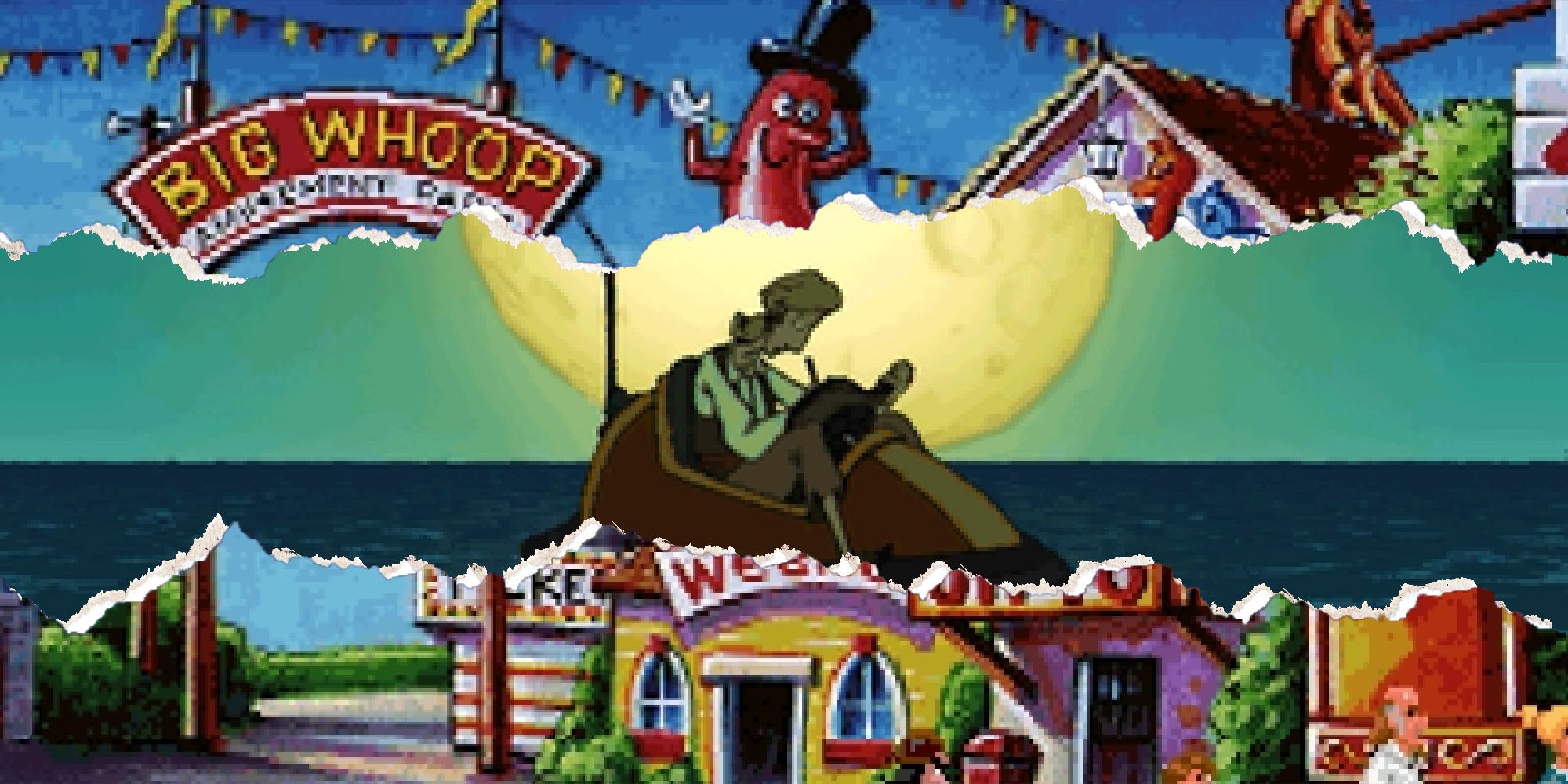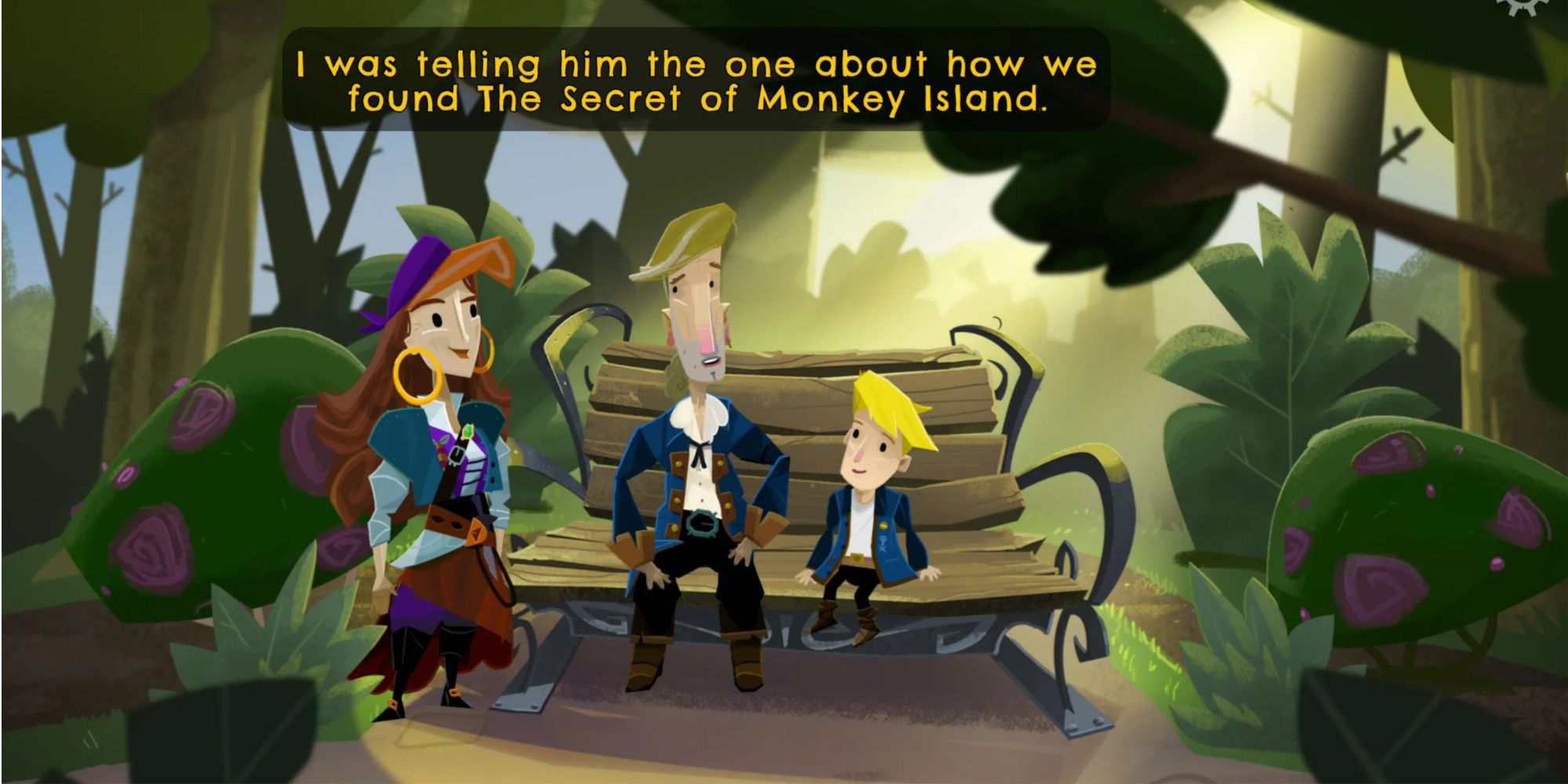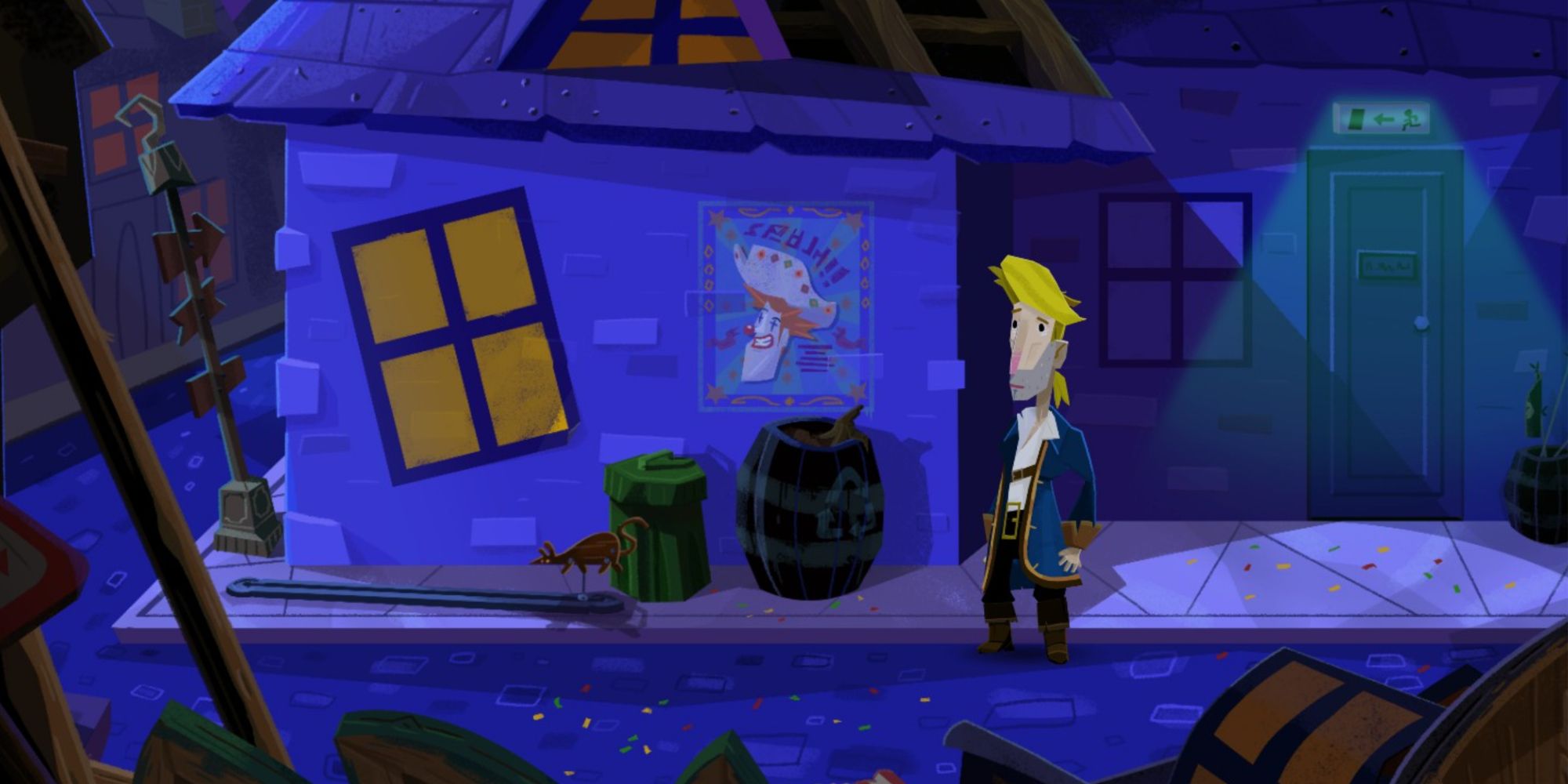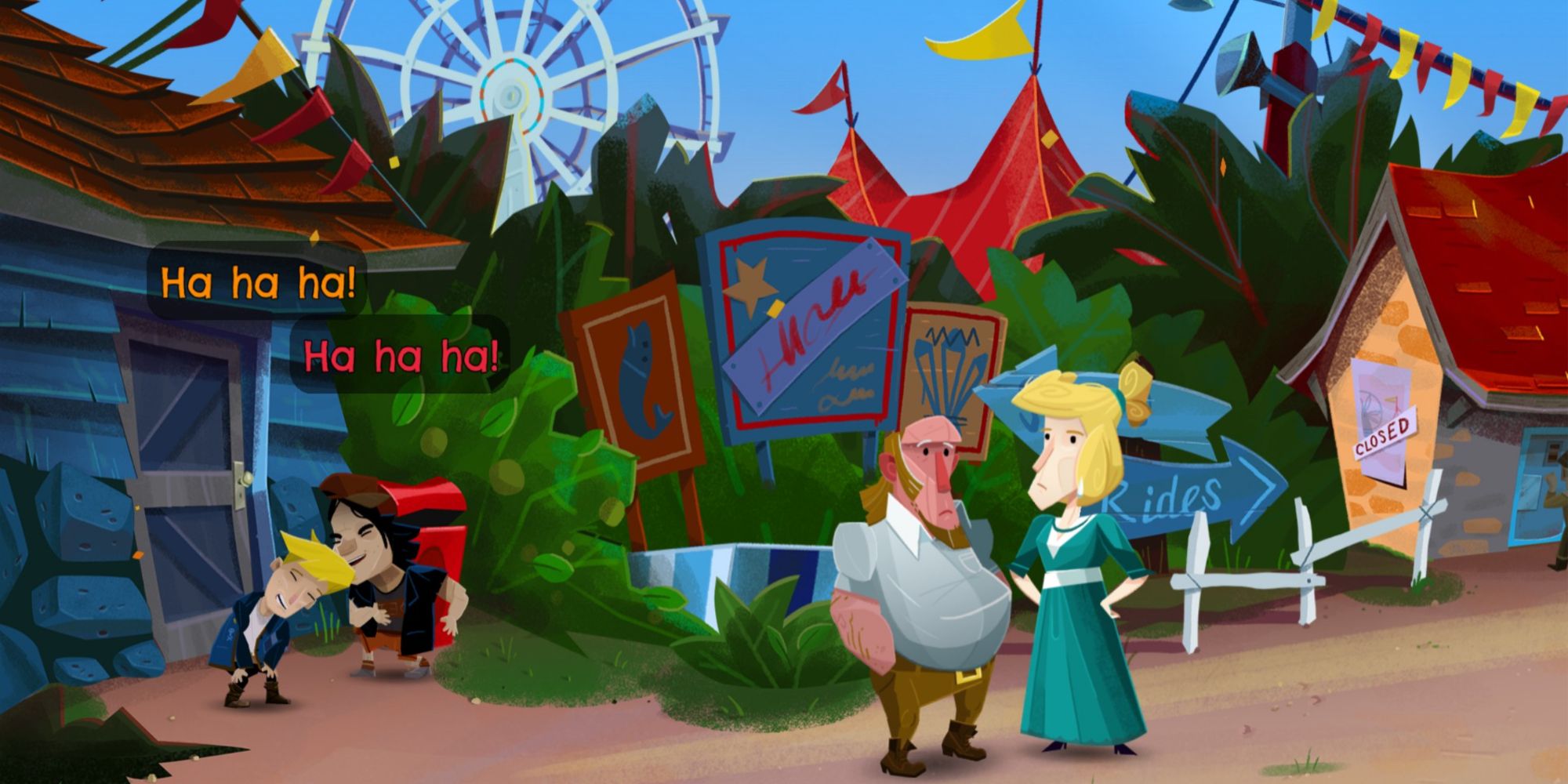Despite being called The Secret of Monkey Island, the first game of the Monkey Island series never really delved into what the eponymous Secret actually was. The focus is on Guybrush Threepwood and his wacky misadventures as he cavorts around the Caribbean, confronting undead pirates and finding love. The series didn’t become a success thanks to the allure of some mysterious secret, and the title became something of a relic.That was until Return to Monkey Island put the secret back in the spotlight. The game drives home that the secret is something we should have been paying attention to all this time, and the game’s seeming unwillingness to tell us what the secret actually is provoked a lot of fan frustration and discussions.In the end, Guybrush walks through a door, and you’re led to believe he’s about to have a dramatic confrontation with his archrival LeChuck and new baddie Captain Madison. Instead, he steps out into an amusement park. In a recent Q&A, creator Ron Gilbert stated that this was the secret all along - Guybrush has been in an amusement park all this time.
Ryan Bamsey and Meg Pelliccio are lifelong fans of the Monkey Island games who have already spent far too much time debating what the newest game’s ending meant. They then had to scrap the first draft of this piece when Gilbert revealed the truth, eliminating the need for a debate. However, this confirmation provoked an interesting question: was revealing this uncomfortable truth a mistake?
M: The theme park theory was actually one that had floated around for years, but it fell to the wayside when Gilbert was no longer at the helm. There had been many online discussions about what the ending of Return to Monkey Island really meant. In the game, we’re given multiple explanations for the secret. A lousy t-shirt? Gems, rubies, and gold? Out of all the options, I liked to think that the true secret was what we, as individual players, made it to be.
For me, the secret meant different things. It meant returning to a series I had adored since my childhood, offering a touching return trip to beloved memories of playing the original two games with my siblings. Weirdly enough, it was also about the IRL friends I made along the way. Part of the enjoyment of Return for me was chatting with Ryan — the two of us discovered that we’d solved puzzles differently or noticed little things that the other hadn’t. And this also led to us debating what we thought really happened at the end. This open interpretation was part of the fun, but with Gilbert giving a definitive answer, it feels like we’ve lost part of what made the secret special.
R: I agree - while I personally dislike ambiguous endings, I can understand why Return had one. Monkey Island is a special series to so many people for so many different reasons, so underlining that fact with a ‘the secret is what you make of it’ ending felt right - it’s more personal to the player that way. To then be told that, ‘actually, the secret is that the whole thing is a fake story and none of it really happened,’ doesn’t sit right with me.
Gilbert said that this was an idea tossed around with the first game but ultimately ditched, but we see remnants of the secret in things like the anachronistic Grog machine and treasure hunter t-shirt. Anachronisms became part of the Monkey Island quirkiness and unique world, not a sinister reminder of an upsetting truth.
Revealing the original idea for the true nature of the secret would be fine in a vacuum, but it seems with Return’s ending, Gilbert is determined to make it the be-all and end-all canon truth of the series. Guybrush isn’t a pirate, he’s a flooring inspector. Mêlée Island is an amusement park set piece. The adventures didn’t happen and there were no stakes. With this knowledge, debate is made fruitless - the question of what happened to Morgan after Tales is moot, she might not even exist. LeChuck’s apparent immortality isn’t a plot point to be analysed, it’s a convenient trope. This new confirmation has taken part of what makes Monkey Island fun and flattened it.
M: Some daft part of me still holds onto the hope that this is not the true secret. At least, not anymore. I understand this was the original plan back in 1988, and despite Gilbert saying, “this is the secret,” he also notes that the idea was abandoned early in development. Perhaps the popularity of the series derailed that plan when fans demanded more, maybe all the post-Gilbert games are what changed Guybrush’s fate?
If we take what Gilbert says at face value, if the secret really is just a theme park, there are still things that make no sense in the game. At the end of Return, Elaine says she has found the lost map to the treasure of Mire Island. What is this, if not hinting at a possible new adventure for Guybrush? Are we to believe it’s a genuine pirate adventure waiting to happen, or just a new theme park ride under construction?
Many parts of Return, especially the ending and various optional post-game scenes, are open to interpretation. I can’t bring myself to believe that all of this fits neatly into the idea that it’s all fake. There’s just too much to discuss — something Ryan and I talked about (at length) before Gilbert’s recent revelation.
For example, I always found it odd that Dee — the third child from the opening — bore a striking resemblance to Captain Madison. So part of me wondered whether, similar to LeChuck’s Revenge, the idea was that the events were just the make-believe adventures of some kids. Don’t get me wrong. I didn’t necessarily like this theory either as it also falls into the whole “none of this is real” camp, but I liked considering it as one of many possible theories, because they were just that, theories. Interestingly, one of the optional post-game scenes is Chuckie chasing Dee with a key in hand, which supports this idea.
R: While Meg didn’t like that idea herself, I latched onto it - it just makes so much sense and doesn’t mess with the canon established by the previous games. In my ideal world, the ending has Guybrush, LeChuck, and Captain Madison all subjected to the same curse that fooled Guybrush at the end of LeChuck’s Revenge. They are all victims of the Carnival of the Damned, with Captain Madison taking the role of Dee as LeChuck takes on the role of Chuckie. At least this way, the story doesn’t have to end and we have a great plot hook for the future.
As it stands, I’m wary. It seems that Return is a success and there’s a good chance that we’ll get another Monkey Island in the future. I share the same concern as Meg - will a new Monkey Island continue building on this bizarre metaplot, or will it return to what draws people to the games in the first place? Personally, I’m praying for the latter. I love pulling on metatextual threads to open up new, exciting possibilities, but dropping the mother of all retcons six games into a beloved series is not a good look and leaves me feeling disillusioned.




